In 2024, text-to-speech technology has become an integral part of our digital landscape. Two standout players in this field are ElevenLabs and Listening, each offering unique approaches to AI speech synthesis.
This article will compare ElevenLabs vs. Listening to help you decide which is the best text to speech option for your needs.
What is Text to Speech Technology?
Text to speech tools have revolutionized how we interact with written content, turning text into speech and making information more accessible.
The demand for high-quality, customizable voice synthesis continues to grow, with various applications benefiting people with visual impairments or reading problems who need assistive technology.
Key applications of TTS include:
• Creating audiobooks
• Podcast production
• E-learning materials
• Customer service interactions
• Accessibility solutions
Overview of ElevenLabs
ElevenLabs has quickly gained attention for its advanced speech synthesis and innovative approach to transforming text into lifelike speech.
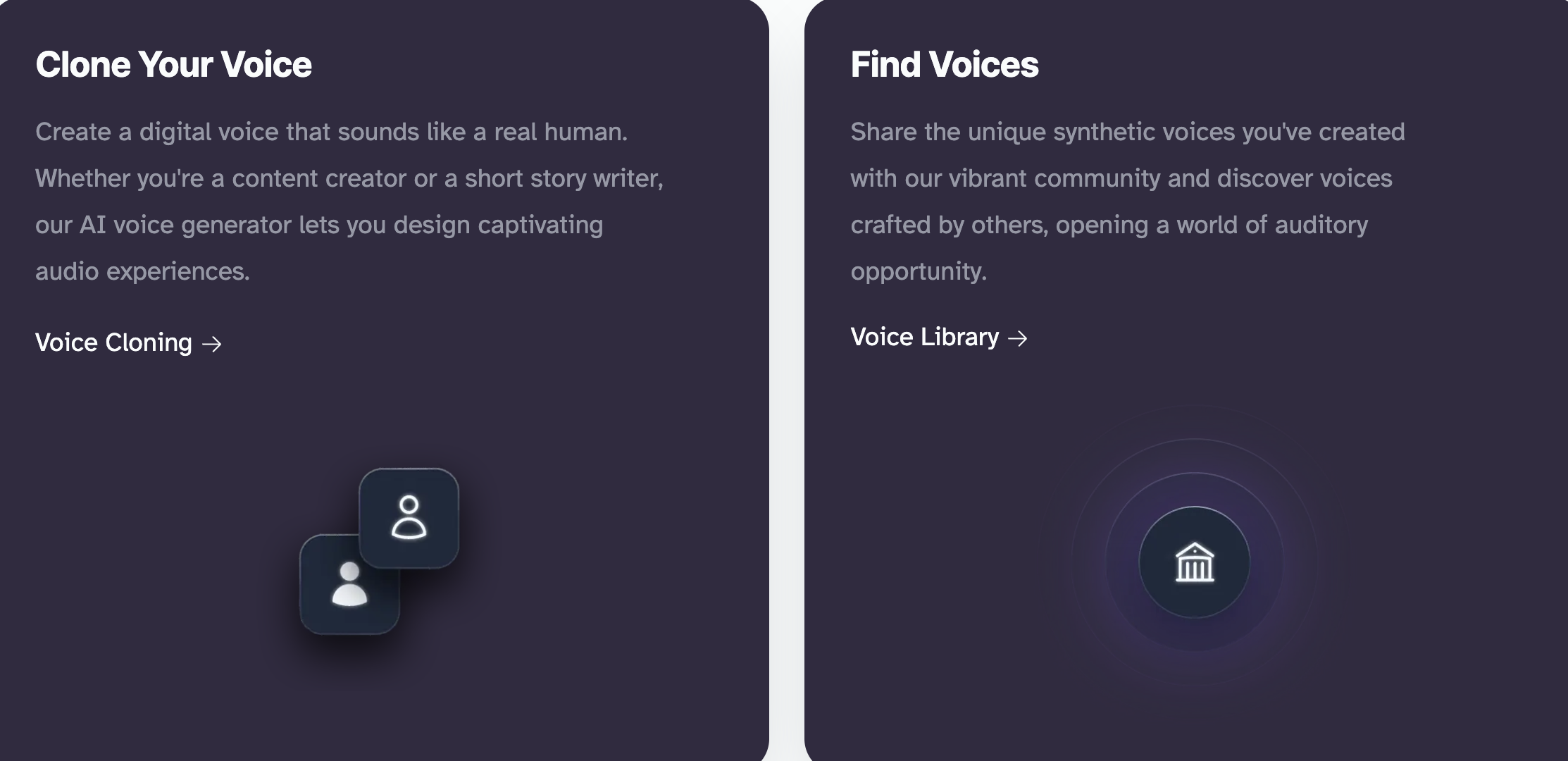
Key features of ElevenLabs:
Voice cloning
One of ElevenLabs’ standout features is its advanced voice cloning technology. Users can create highly realistic synthetic voices based on just a few minutes of audio samples. This feature allows users to create personalized voices or replicate specific voice characteristics.
Customization options
The app provides extensive customization options. Users can fine-tune various aspects of the synthesized voice. These include adjusting pitch, speed, emphasis, and even emotional tone.
Supports multiple languages
ElevenLabs supports multiple languages so that users can generate speech in various tongues with native-like pronunciation. The platform continuously expands its language offerings, making it a versatile choice for global content creation.
Rapid text-to-speech processing
ElevenLabs allows users to clone voices, creating highly realistic speech based on just a few minutes of audio samples. This capability opens up new possibilities for content creators looking to produce unique voices for various applications.
Overview of Listening
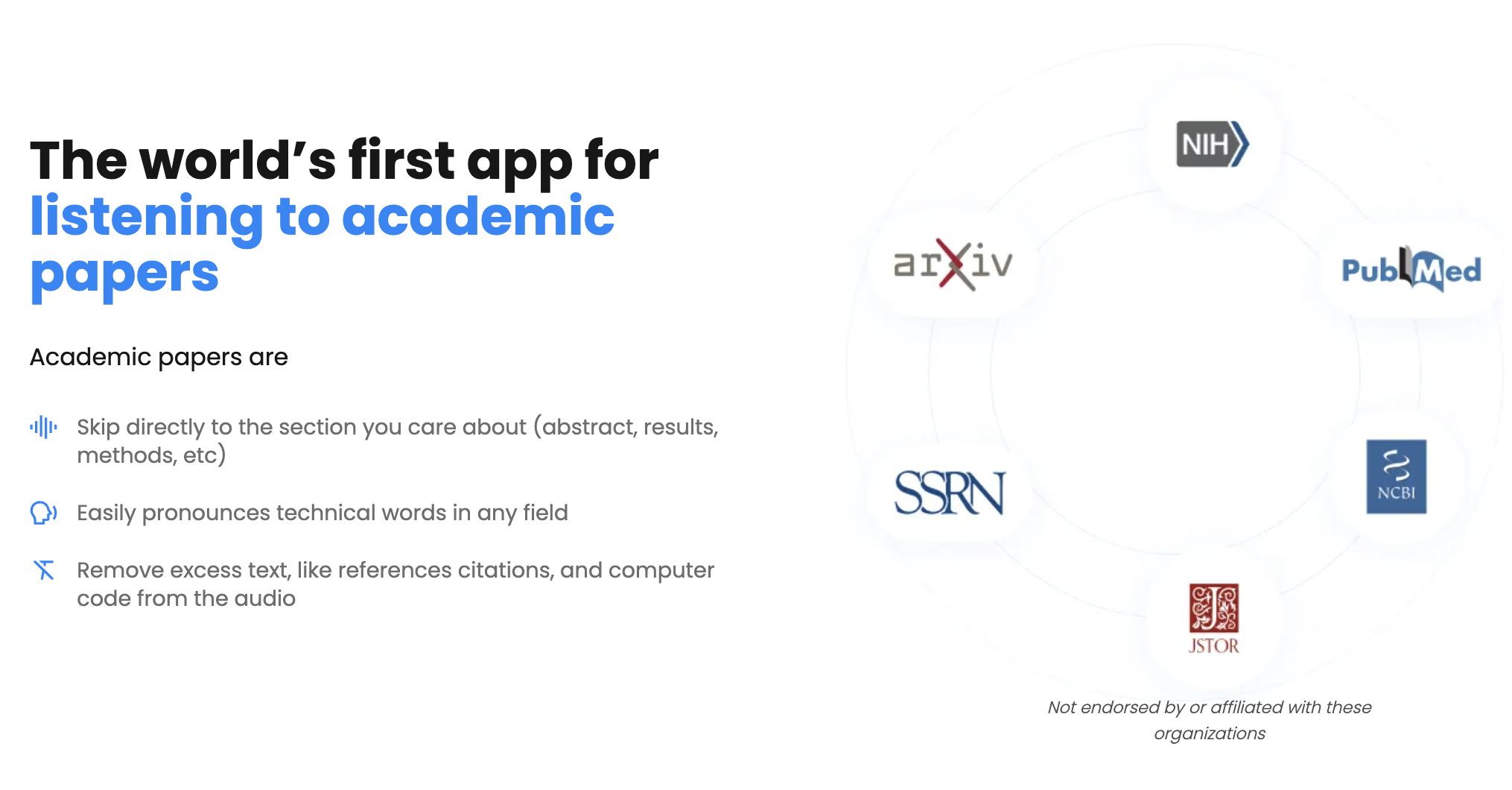
Listening is a text-to-speech app for academic papers and research journals. This TTS app can easily pronounce technical terms in any field and allows users to skip citations, references, and even footnotes.
With AI technology, the Listening app has built a reputation for delivering high-quality, natural human speech. The platform focuses on creating a natural and engaging listening experience.
Key features of Listening:
Human-like voices
Listening prides itself on producing some of the most natural-sounding synthetic voices in the industry. Their technology focuses on mimicking human speech patterns, intonation, and rhythm to create voices that are often indistinguishable from human speech.
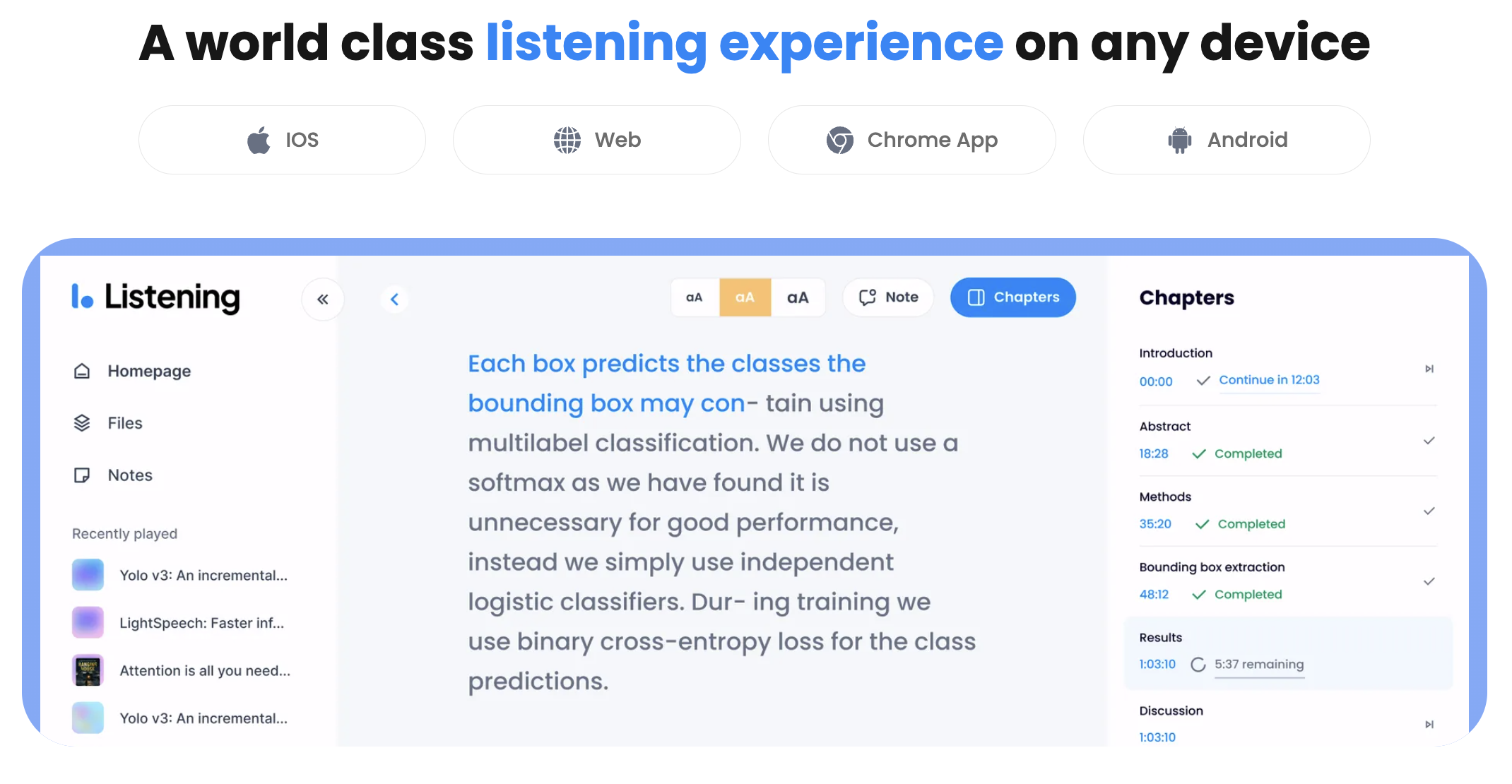
Wide range of languages and accents
The app offers a wide range of languages and accents, catering to a global audience. Listening’s language models are continuously updated to improve accuracy and natural flow in various languages.
Strong integration capabilities
One of Listening’s strengths is its robust integration capabilities. The app offers easy integration with popular platforms and services, making it a versatile choice for businesses and developers looking to incorporate TTS into their existing workflows or applications.
You can listen to any device and upload any form of written text. Listening is available as a Chrome extension, iOS, Android Play Store, Desktop app, and even on the Web.
Consistent performance across long-form content
Listening’s strength lies in its ability to replicate human speech patterns, making it an excellent choice for students and researchers who are looking for a dynamic learning experience.
Features Comparison: ElevenLabs vs Listening
Both platforms excel in different areas:
Voice Quality and Naturalness:
• ElevenLabs: Highly customizable, unique voices
• Listening: Extremely natural-sounding, human-like speech
Language Support:
• ElevenLabs: Growing list of languages, focus on major global languages
• Listening: Extensive range of languages and regional accents
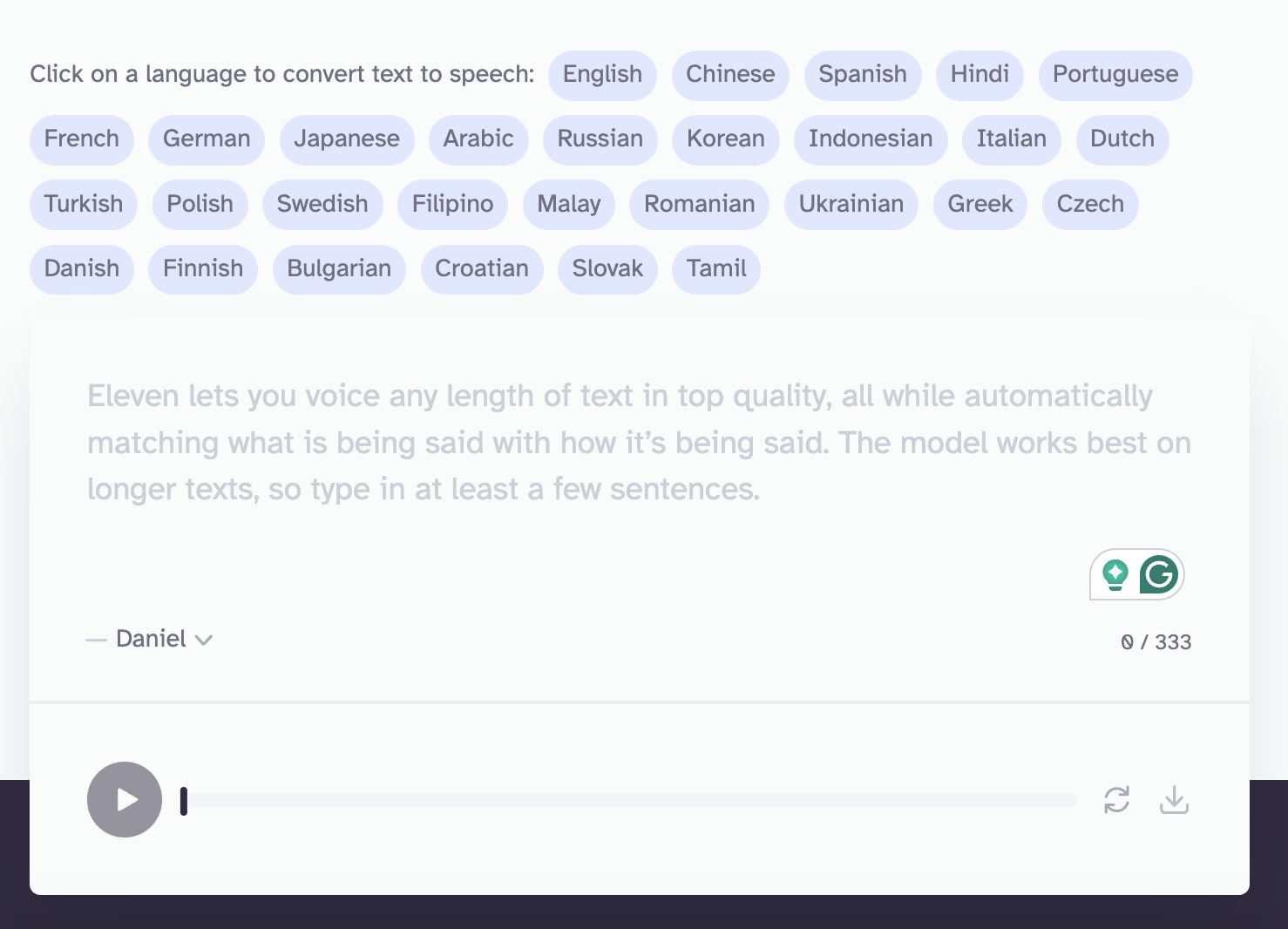
Customization:
• ElevenLabs: Advanced voice cloning and extensive customization options
• Listening: Less extensive customization, focus on out-of-the-box quality
User Interface:
• ElevenLabs: More advanced options, steeper learning curve
• Listening: User-friendly, streamlined, and intuitive interface. Easier for beginners
Performance Analysis – Speed and Efficiency:
• ElevenLabs: Rapid processing, near real-time results
• Listening: Efficient, but slightly longer processing for some tasks
Accuracy and Pronunciation:
• ElevenLabs: Highly accurate, especially in well-trained languages
• Listening: Excels in natural intonation and rhythm
Scalability:
Both platforms offer scalable solutions, with ElevenLabs focusing on cloud-based infrastructure and Listening emphasizing enterprise-level implementations.
Use Cases and Applications
E-learning:
E-Learning with Eleven Labs:
Suited for diverse educational content and unique brand voices. ElevenLabs’ multilingual support and AI voice customization make it well-suited for creating diverse educational content.
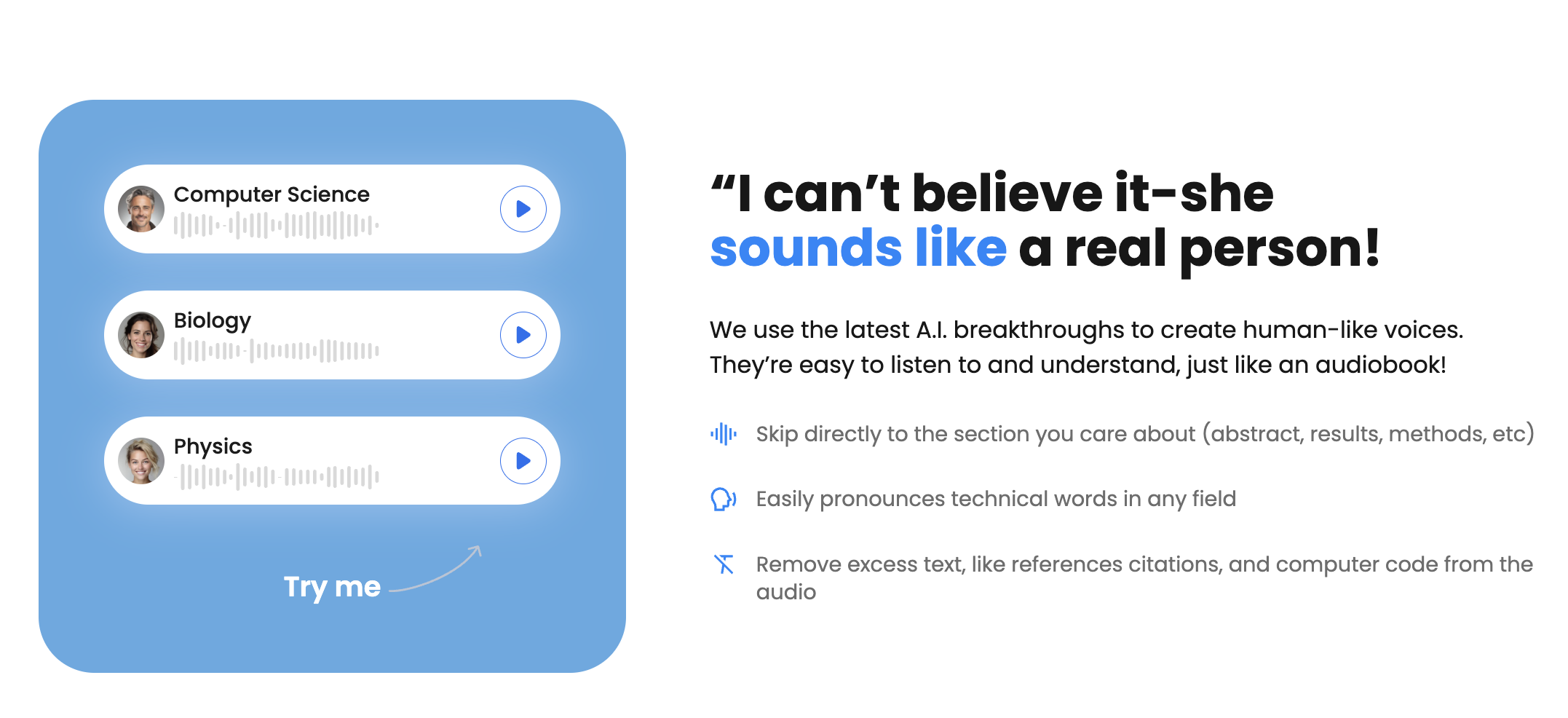
E-Learning with Listening:
Strong in language learning applications and customer interaction systems. Listening’s natural-sounding custom voices can be particularly effective in language learning applications and in creating engaging educational narratives.
Content Creation:
ElevenLabs:
Ideal for unique or cloned voices in podcasts, and videos, and converting written content to speech. ElevenLabs offers voice cloning technology that’s ideal for creating consistent narration across multiple pieces of content.
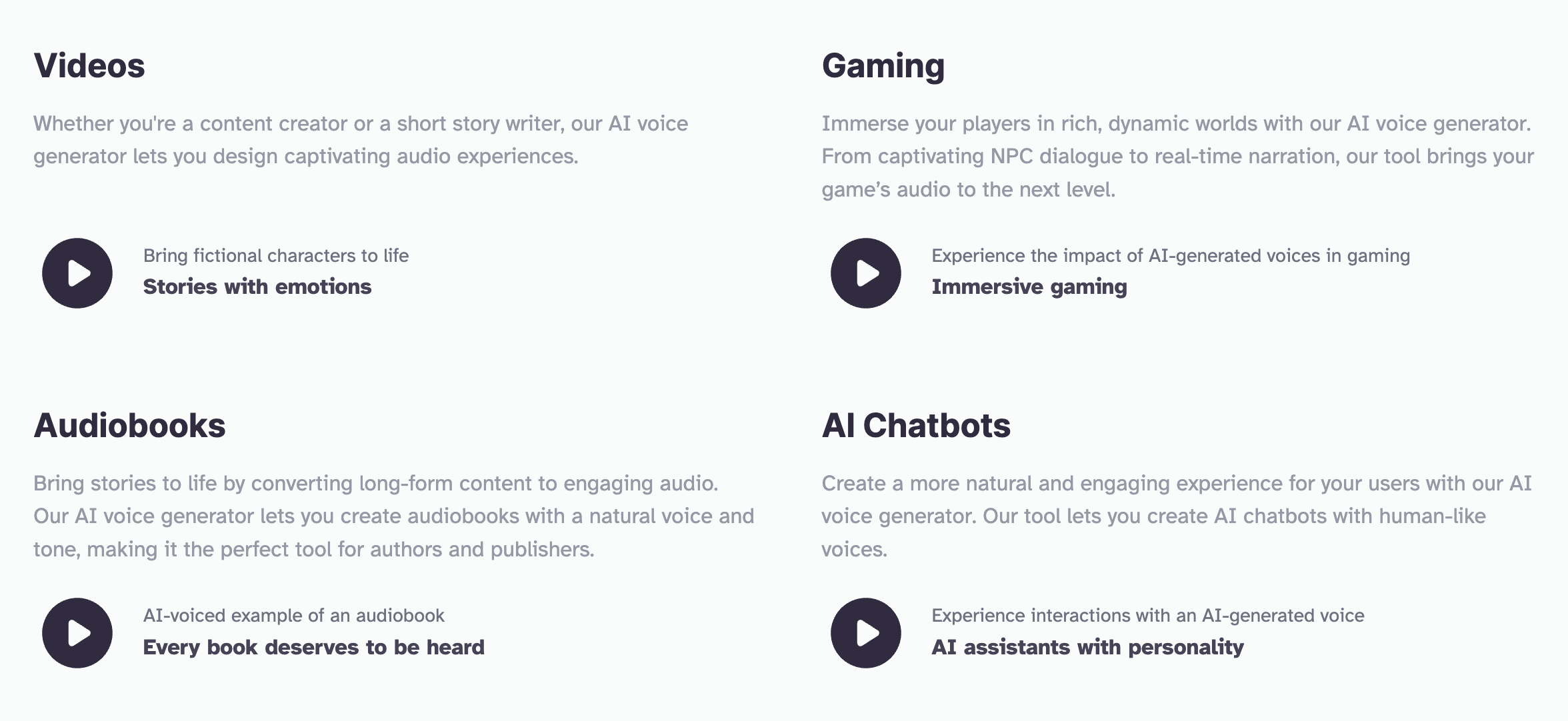
Listening:
Excellent for long-form content where natural sound is crucial. This advanced TTS app is an excellent choice for audiobooks and long-form content where listener fatigue is a concern. This text-to-speech app reads text aloud and benefits those with reading problems.
Pricing Comparison
ElevenLabs Pricing:
- Free Plan: 10,000 characters per month/10-minute audio
- Starter Plan at $5/month: 30,000 characters per month/30-minute audio
- Creator Plan at $11/month: 100,000 characters per month/2-hour audio
- Pro plan at $99/month: 500,000 characters per month/10-hour audio
- Scale plan at $330/month: 2,000,000 characters per month/40-hour audio
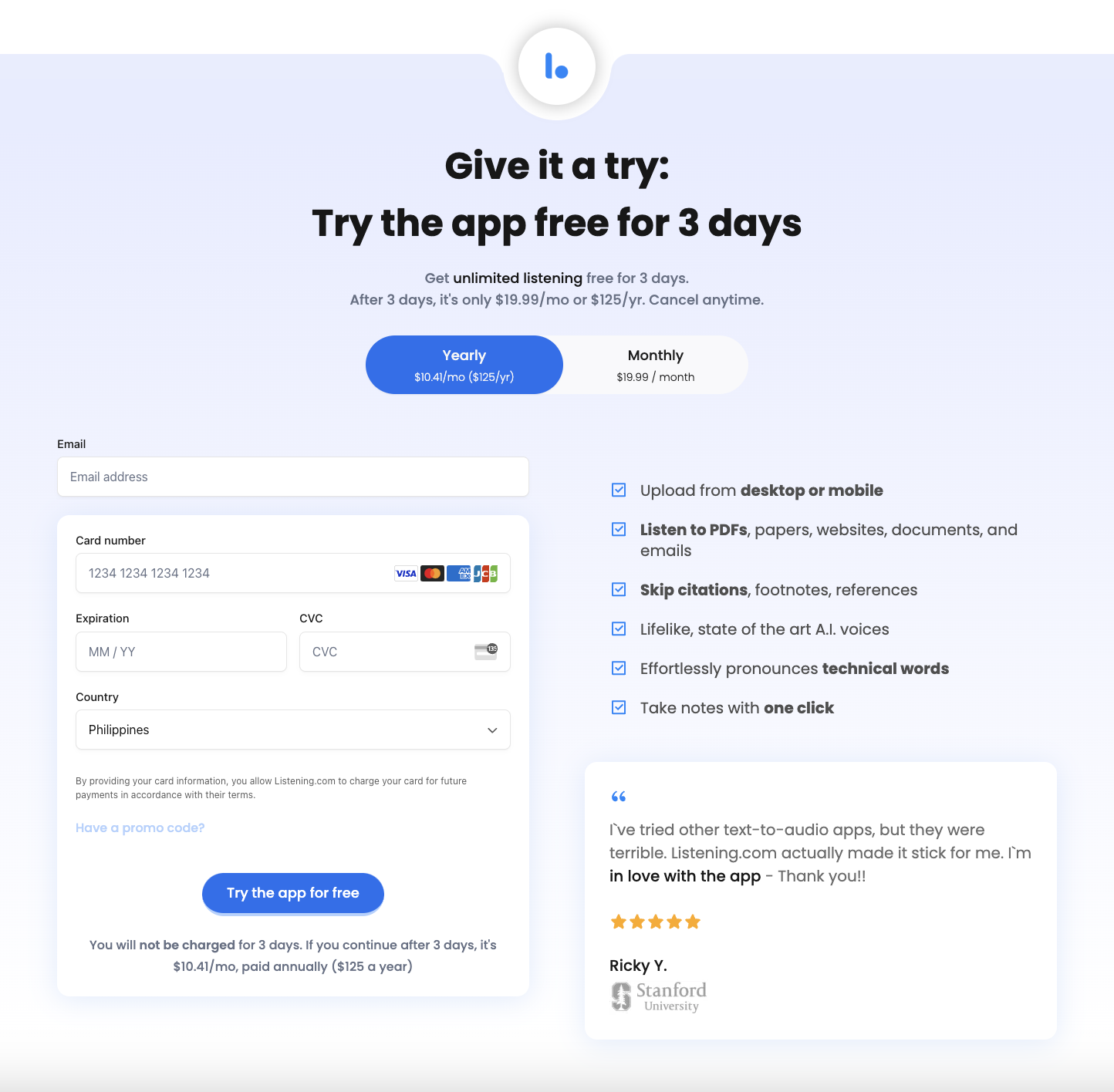
Listening Pricing:
- Free trial: Unlimited listening for 3 days
- $19.99/month: Unlimited listening
- $125/year or $10.41/month: Unlimited listening
When considering which TTS provider to invest in, it’s important to evaluate how many times each TTS provider allows you to convert text within their pricing structure.
Which TTS App is For You?
Choosing between ElevenLabs and Listening depends on your specific requirements:
• ElevenLabs might be a better option if you need:
– Highly customized or cloned voices
– Extensive control over voice parameters
– Rapid processing for real-time applications
• Listening could be a better alternative if you prioritize:
– Extremely natural-sounding voices
– Seamless integration with existing systems
– Consistent quality across long-form content
Both platforms offer powerful text-to-speech solutions, each with its unique strengths. ElevenLabs uses advanced AI to create emotionally rich speech while Listening excels at producing a natural and engaging listening experience.
We recommend taking advantage of free trials or demos to experience their features firsthand.
This will help you determine which TTS model aligns best with your needs, whether you’re looking to create audiobooks, enhance accessibility for those with visual impairments, or improve customer service interactions.
Remember, the best AI text to speech tool for you will depend on your specific use case and the level of realism and customization you require in your speech output.









